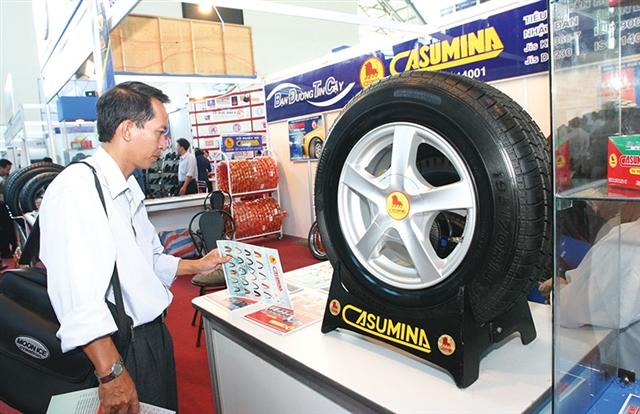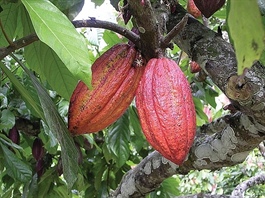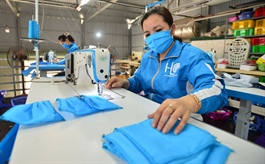Preliminary decision on tyre exports flusters the market
Preliminary decision on tyre exports flusters the market
The global demand for rubber and tyre products has been consistently increasing throughout the last decade, with Vietnam being one of the top suppliers of these items. However, trade remedies imposed by export markets present rocks in the way of domestic manufacturers, who are now looking for solutions to avoid such measures.

Vietnam is among the leading five countries for rubber exports, with markets all over the world, photo Le Toan
|
Vietnamese tyres for cars and light trucks are awaiting final judgment regarding countervailing duties that could be imposed by the US government, with the ultimate decision planned for the end of April 2021.
US Secretary of Commerce Wilbur Ross at the beginning of November announced an “affirmative preliminary determination in the countervailing duty investigation of passenger vehicle and light truck tyres from Vietnam,” stated the US Department of Commerce’s (DOC) website, which “preliminarily determined that exporters and producers from Vietnam received counter available subsidies with rates ranging from 6.23 to 10.08 per cent.”
The current tax rates imposed on Vietnamese tyres exported to the United States are not high, but manufacturers may suffer disadvantages should the DOC’s decision follow suit with the preliminary determination.
Data by the International Trade Administration shows that Vietnam’s turnover of around 12.1 million tyres in 2019 to the US market reached $469 million, accounting for about 6.7 per cent of total US tyre imports.
Pham Hong Phu, general director of Southern Rubber Industry JSC (Casumina) said that his company would see a “slight impact from US-imposed duties” as this market accounts for around 15 per cent of Casumina’s export sales. The increase from zero to 6 per cent trade duties when exporting to the US could also impact the company’s targeted total revenue increase of 14 per cent to VND4.9 trillion ($213 million) for 2020.
Phu added that this is the first time the US has imposed anti-subsidy tax on Vietnamese tyres. Apart from the US, his company is also exporting its products to European and Southeast Asian markets.
In addition to Casumina, other companies exporting tyres for passenger vehicles and light trucks to the US will also be affected. The DOC imposed a 10.08 per cent tax on South Korea’s Kumho Tires Co., Ltd. Kumho accounts for about 40 per cent of Vietnam’s total export volume, with 90 per cent of its exports going to the US, Australia, Southeast Asia, and South and Central America. However, the impact of the DOC’s tax decision on this company has not been clearly estimated yet.
Meanwhile, the DOC’s preliminary subsidy rates for other manufacturers are set at 6.77 per cent, except for Sailun Co., Ltd. for which the rate amounts to 6.23 per cent.
Two ways out
Some local businesses are now hoping for the application of a “suspension agreement” from the US side as a possibility of avoiding the countervailing tax so as to help them overcome the pandemic. Data from the WTO and International Trade Center (WITC) under the Vietnam Chamber of Commerce and Industry shows that the US usually applies two types of suspension agreements in anti-subsidy cases, as well as near-stop agreements due to lack of practical significance of the exporter.
Proceedings may be suspended or terminated without the imposition of countervailing duties upon receipt of satisfactory voluntary undertakings under which the government of the exporting country agrees to eliminate or limit the subsidy; or the exporter takes other measures such as revising its prices so that the investigating authorities are satisfied that the injurious effect of the subsidy is eliminated.
The first subsidy agreement is more attractive to defending exporters and more viable for the DOC as the exporters in this case do not have to guarantee that all their consignments when they are exported to the US are not related to the subsidy.
Meanwhile, under the second agreement the exporter will have to offset at least 85 per cent of the subsidy, which has certain quantitative limitations. However, it is this distinct feature that makes the agreement easier to accept for the defendant’s exporting enterprises as it can still retain the US market, and it is therefore also more feasible.
Nguyen Thi Thu Trang, director of the WITC, said that both the Vietnamese government and businesses need to pay attention to this possibility to choose the appropriate type of agreement and propose either one to the investigative US agencies.
“The nature and conditions of these types of suspension arrangements in countervailing investigations are relatively beneficial and feasible for exporters. If they reach an agreement, enterprises can avoid being subject to anti-subsidy tax,” said Trang.
|
Le Trieu Dung - Director general Trade Remedies Authority Ministry of Industry and Trade
The coronavirus pandemic has been impacting the global economy in a negative manner, and trade conflicts between many economies around the world amid this situation only continue to develop in a complicated fashion, with related restrictions increasing. By the end of September, Vietnam had 193 cases of trade remedy investigations, with an affected turnover amounting to $12 billion. Meanwhile, such values with goods originating in Vietnam are also continuing to increase. In 2019, Vietnam recorded 16 new cases, but in the first nine months of 2020, the number of cases doubled to 32. The Ministry of Industry and Trade has implemented many measures to support Vietnamese enterprises to successfully handle such cases, with the successful cases currently accounting for about 43 per cent. Fortunately, although products such as seafood, steel, and wood have been applied with trade remedies, the effective tax rates often amount to zero or very low rates, helping to maintain their business and increase exports. |
Future concerns
The global natural rubber consumption has been increasing nearly consistently throughout the last decade. While in 2009, the global usage stood at 9.2 million tonnes, it reached 13.7 million tonnes in 2018, according to Germany’s database firm Statista. Although last year the global consumption saw a slight decrease of around 40,000 tonnes, the rising demand for tyre production, estimated to grow by 3.8 per cent per year according to US consultancy Smithers, may be an indicator for an upwards trend for the next few years.
Vo Hoang An, vice chairman of the Vietnam Rubber Association (VRA), hopes this trend will be an opportunity for domestic manufacturers and exporters to further reach out to the world and increase their foothold in overseas markets. “Amid prolonged oversupply in the market, the competition among natural rubber producers and exporting countries is getting fiercer,” An commented.
He worries that if the number of trade defence investigations on rubber products increases, the total export turnover of the whole industry may fall significantly, and producers and exporters could suffer great losses due to the administrative procedures.
Vietnam is currently among the top five countries in the world for natural rubber exports and related products. According to the VRA, the country is exporting rubber to more than 60 markets across the world, with China, India, and South Korea being the three largest consumption markets, accounting for 66.5, 8.3, and 3 per cent in 2019 respectively. Meanwhile, Vietnam has now more than 180 companies producing and exporting tyres to 153 markets around the world.
However, protectionism and trade tensions between economies around the world are putting great pressure on global trade flows. Meanwhile, the US trade law system attempts to pre-determine support mechanisms for businesses in addition to providing supporting regulations for the investigative agency.
Trang of the WITC hopes that Vietnamese policymakers will soon apply similar mechanisms and support businesses in importing and exporting goods. “Equally important is the information transparency of trade defence cases from state regulators as the current methods are not enough to promptly warn businesses about the risks of falling into trade defence lawsuits,” Trang argued.











